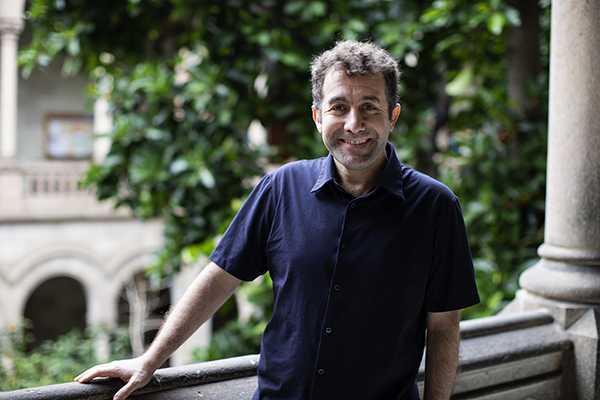The UB leads a European project on clinical data management to fight against cardiovascular diseases

The University of Barcelona is leading the European project DataTools4Heart (DT4H), funded with 7.7 million euros, which will work on a platform to be used by several hospitals in Europe. These healthcare centers will share clinical data on the platform and will therefore improve their cardiology care.
This platform will harmonise, standardise and organise health data provided by hospitals, optimise usage and it will also provide solutions to combat cardiovascular disease and morbidity, in strict compliance with ethical and legal privacy requirements.

The University of Barcelona is leading the European project DataTools4Heart (DT4H), funded with 7.7 million euros, which will work on a platform to be used by several hospitals in Europe. These healthcare centers will share clinical data on the platform and will therefore improve their cardiology care.
This platform will harmonise, standardise and organise health data provided by hospitals, optimise usage and it will also provide solutions to combat cardiovascular disease and morbidity, in strict compliance with ethical and legal privacy requirements.
Karim Lekadir, researcher of the Faculty of Mathematics and Computer Science of the UB and coordinator of DT4H projects, believes this cardiology data platform is “an unprecedented opportunity”. It includes virtual assistants that “will help healthcare professionals to better understand the data with clinical and research purposes”. To test its applicability, the platform will be validated in seven hospital centers from seven countries (Netherlands, Sweden, United Kingdom, Italy, Spain, Czech Republic and Romania).
This project, which will last for four years, is built by a consortium of sixteen partners, including the following internationally renowned research institutions, professional associations, companies and hospitals of excellence: the University of Barcelona (coordinator); Lynkeus SRL; the Barcelona Supercomputing Centre; Software Research & Development Consultancy; the Athena Research Centre; the University Medical Center Utrecht; Panetta Studio Legale; Translated SRL; Siemens Healthcare; the Agostino Gemelli University Polyclinic (IRCCS); St. Anneʼs University Hospital in Brno; Vall dʼHebrón University Hospital - Institute of Research (VHIR); Karolinska University Hospital; the University Emergency Hospital of Bucharest; the European Society of Cardiology, and the University College London Hospital.
